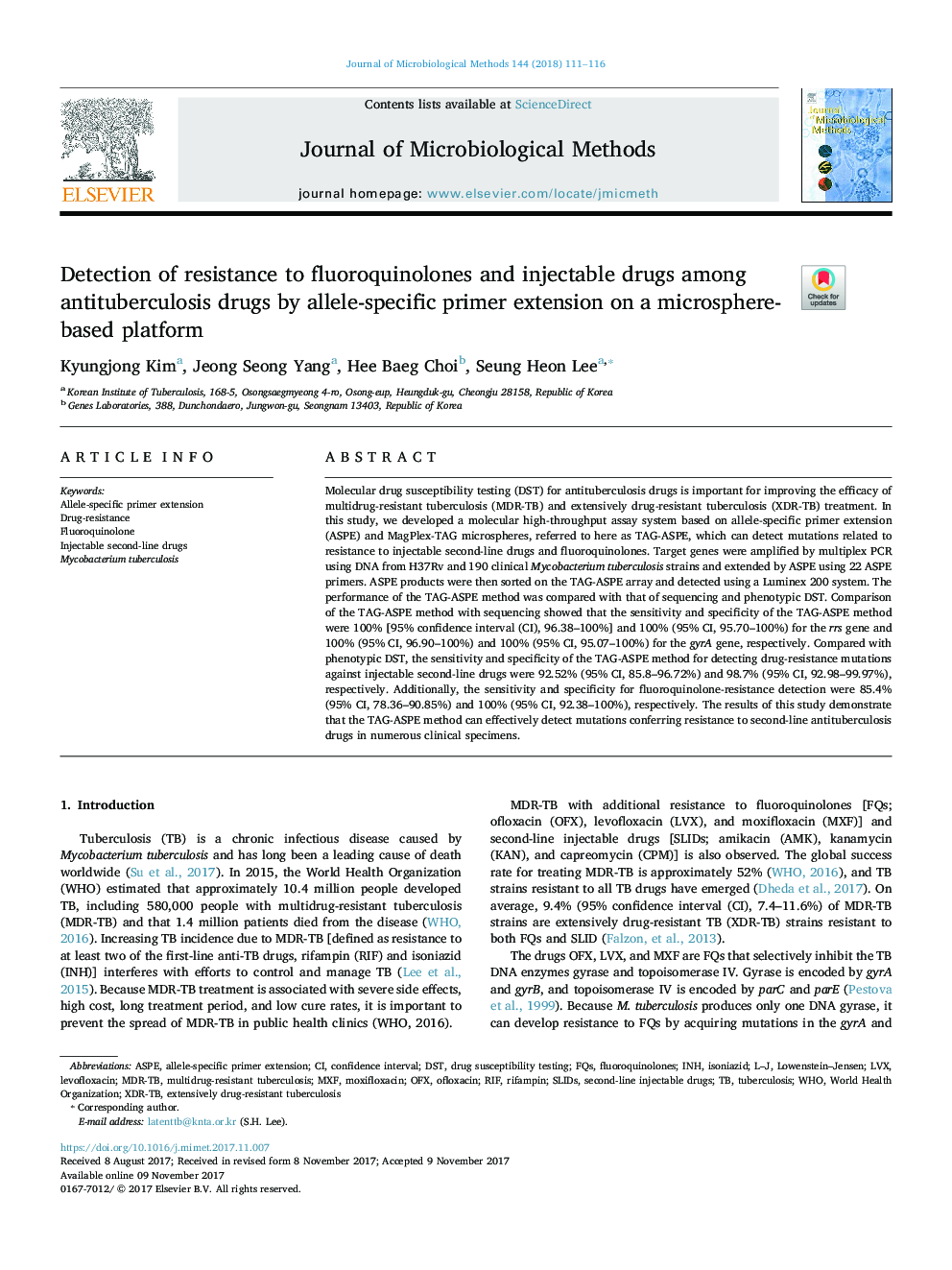| Article ID | Journal | Published Year | Pages | File Type |
|---|---|---|---|---|
| 8420610 | Journal of Microbiological Methods | 2018 | 6 Pages |
Abstract
Molecular drug susceptibility testing (DST) for antituberculosis drugs is important for improving the efficacy of multidrug-resistant tuberculosis (MDR-TB) and extensively drug-resistant tuberculosis (XDR-TB) treatment. In this study, we developed a molecular high-throughput assay system based on allele-specific primer extension (ASPE) and MagPlex-TAG microspheres, referred to here as TAG-ASPE, which can detect mutations related to resistance to injectable second-line drugs and fluoroquinolones. Target genes were amplified by multiplex PCR using DNA from H37Rv and 190 clinical Mycobacterium tuberculosis strains and extended by ASPE using 22 ASPE primers. ASPE products were then sorted on the TAG-ASPE array and detected using a Luminex 200 system. The performance of the TAG-ASPE method was compared with that of sequencing and phenotypic DST. Comparison of the TAG-ASPE method with sequencing showed that the sensitivity and specificity of the TAG-ASPE method were 100% [95% confidence interval (CI), 96.38-100%] and 100% (95% CI, 95.70-100%) for the rrs gene and 100% (95% CI, 96.90-100%) and 100% (95% CI, 95.07-100%) for the gyrA gene, respectively. Compared with phenotypic DST, the sensitivity and specificity of the TAG-ASPE method for detecting drug-resistance mutations against injectable second-line drugs were 92.52% (95% CI, 85.8-96.72%) and 98.7% (95% CI, 92.98-99.97%), respectively. Additionally, the sensitivity and specificity for fluoroquinolone-resistance detection were 85.4% (95% CI, 78.36-90.85%) and 100% (95% CI, 92.38-100%), respectively. The results of this study demonstrate that the TAG-ASPE method can effectively detect mutations conferring resistance to second-line antituberculosis drugs in numerous clinical specimens.
Keywords
OFXINHFQsLVXAllele-specific primer extensionASPEDSTMDR-TBXDR-TBExtensively drug-resistant tuberculosisDrug susceptibility testingOfloxacinisoniazidTuberculosisRifampinWorld Health OrganizationMultidrug-resistant tuberculosisconfidence intervalFluoroquinoloneFluoroquinolonesLevofloxacinMycobacterium tuberculosisDrug-resistanceMoxifloxacinRifWHO
Related Topics
Life Sciences
Biochemistry, Genetics and Molecular Biology
Biotechnology
Authors
Kyungjong Kim, Jeong Seong Yang, Hee Baeg Choi, Seung Heon Lee,
